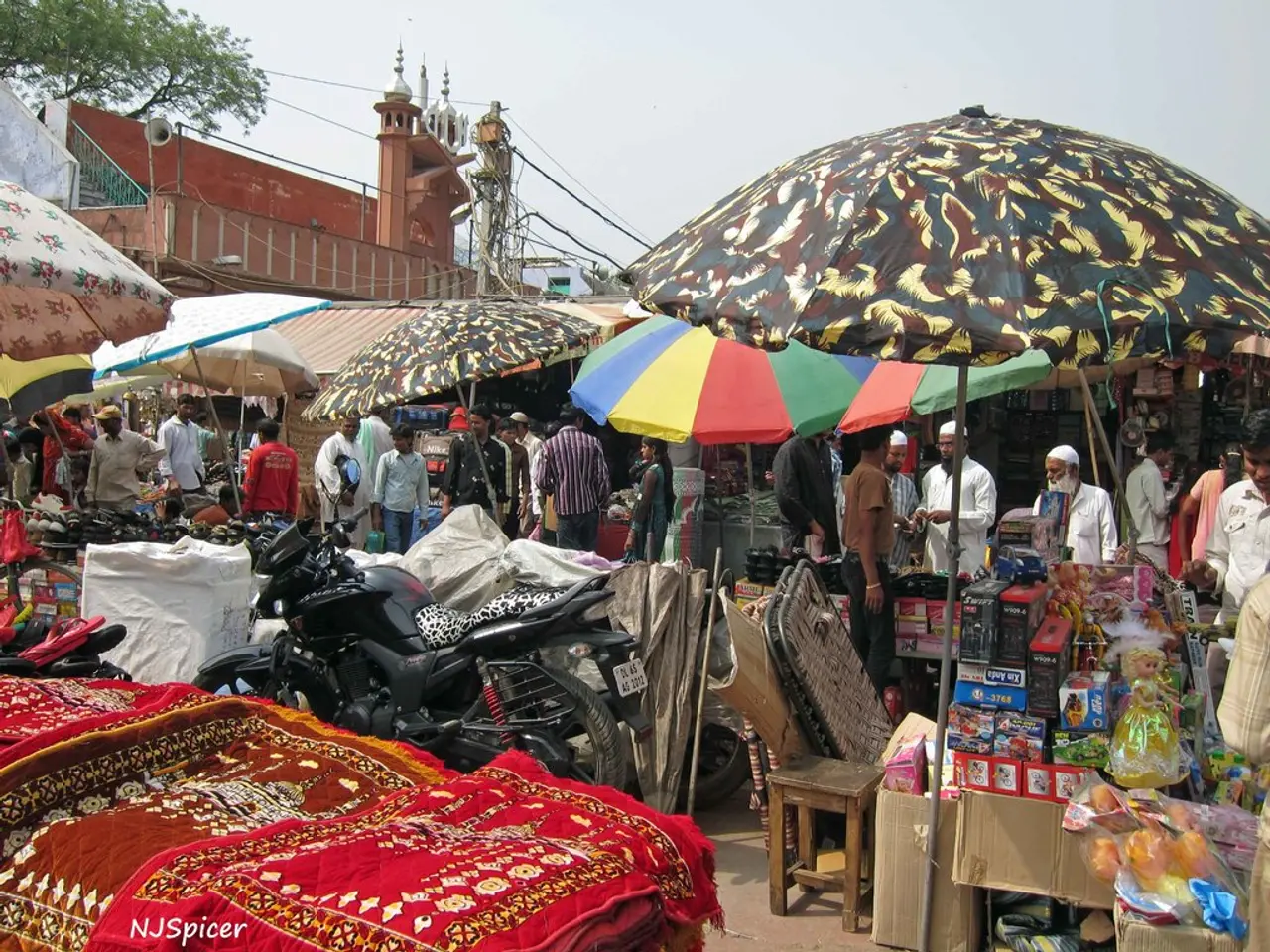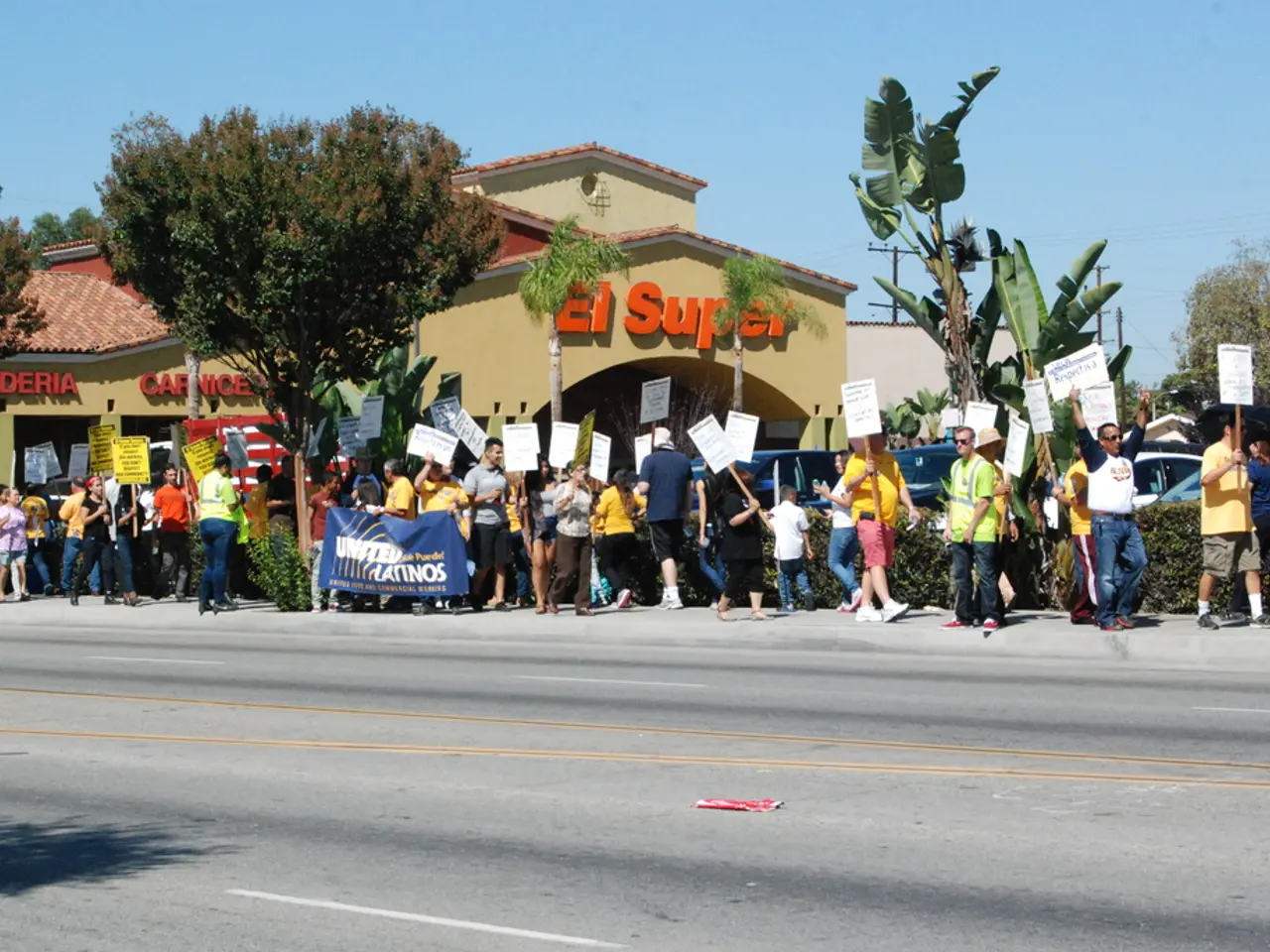Chilling Tales from Death Row: The Ordeal of Critics in Iran's Prisons
Terror lingers in the grim confines of Iranian clerics' execution chambers
By Lea Verstl; Edited for Clarity and Originality
Mehdi Hassani, convict on death row, currently resides in Ghezel Hesar Prison. For criticizing the Iranian regime, he is set to face execution. His daughter, Maryam, has fled to Germany. Communication with her father is scarce, but she reveals the torment he endured within the prison's walls.
On September 6, 2022, Maryam Hassani last held a face-to-face conversation with her father. Initially, he vanished without a trace. Subsequently, a letter from the Iranian authorities arrived: Mehdi Hassani had been arrested and taken to Evin Prison in Tehran. As a critic of the Iranian regime, he was a familiar figure, his daughter recounted. His current location? A death cell in Ghezel Hesar Prison, a province of Alborz, known as a precursor to execution.
The Iranian regime's barbaric treatment of its critics was detailed in a UN report revealed this week. At least 975 individuals were executed in Iran last year, marking the highest number since 2015, said UN Deputy High Commissioner for Human Rights Nada Al-Nashif. Many of these prisoners were tortured before the hanging.
"My father suffered severe injuries to his neck, back, and feet in prison," Hassani revealed to ntv.de. "Despite his dire medical condition, he is denied proper medical care." Torture methods inside the prison included deliberate food and sleep deprivation. Officially, her father was convicted on charges such as "armed rebellion against the state," "enmity against God," and "corruption on earth." In Iran, Sharia law shapes the nation's legislation.
Psychological Terror
In addition to physical abuse, Maryam Hassani claimed her father faced psychological pressure to induce false confessions: "They threatened my father in prison on numerous occasions, suggesting they would harm his family, even going as far as threatening my eight-year-old brother with rape.”
Hassani's account cannot be independently verified, but it echoes reports from human rights organizations. Due to limited access to death rows like Ghezel Hesar Prison, contact with the Hassani family is difficult. Maryam Hassani, her siblings, and their mother are not allowed to visit. Contact with the father is scarce, sometimes made possible through calls.
The 24-year-old escaped to Germany after her father's arrest. Remaining family members still reside in Iran. Similar to her father, Hassani is politically active in Germany. She is advocating against the Iranian regime and dedicating her efforts to the release of political prisoners. "Currently, more than 55 political prisoners are at imminent risk of execution in Iran," she said. This Saturday, she will participate in a demonstration to pressure the federal government to make the negotiations with the Iranian regime contingent on the release of political prisoners.
A Bloody History of PersecutionThe regime continues to arrest, torture, and execute individuals participating in the "Woman, Life, Freedom" movement. The demonstrations, which began in September 2022 under the slogan "Woman, Life, Freedom," were sparked by the death of Jina Mahsa Amin. The 22-year-old passed away under mysterious circumstances after being detained by the morality police for not appropriately adhering to the hijab. This slogan remains a symbol of the demand for women's rights and an end to repression.
A Questionable AllegianceHassani's father was also an advocate for women's rights; however, she refrains from elaborating on his political activities for safety reasons. It is known that he was accused of belonging to the oppositional People's Mujahedin organization. Founded in Iran in 1965, the aim was to overthrow the Shah's regime. The organization played a significant role during the 1979 revolution, but eventually lost its influence. In 1981, it relocated to Paris. During the Iran-Iraq war (1980-1988), the People's Mujahedin allied with Iraqi dictator Saddam Hussein. The organization was on the EU's terror list from 2001 to 2009 and the US list until 2012.
Some claim the organization was accused of employing militant tactics, while the People's Mujahedin deny this, asserting a dedication to democratic values.
"Historically, the People's Mujahedin have been associated with authoritarian ideologies and violent methods," Professor Stephan Stetter of the University of the German Armed Forces Munich explained. "However, such ideologies and methods can be shed for political reasons." The organization maintains an ambiguous reputation, with accusations ranging from terrorist activities to standing for democratic values.
A Nation Divided"My father wished for freedom in Iran, freedom for women, and freedom for society," Maryam Hassani asserted. He lived a decent life as a taxi driver, and his family enjoyed a normal existence in Iran until the day of his arrest.
According to the German Federal Government, the People's Mujahedin of Iran (PMOI/MEK) is "an authoritarian-leaning Iranian exile opposition group." However, there is currently no evidence to suggest that the group uses violence to achieve its goals. The German Federal Government acknowledges that the Iranian regime views the movement as an enemy and suppresses it. Supporters of the PMOI/MEK have been killed in Iranian prisons, predominantly after the conclusion of the Iran-Iraq war in 1988.
Sources:- ntv.de
- Iran
- Human Rights
- Amnesty International
- United Nations
- Executions
- Torture
- People's Mujahedin
- The Iranian regime's aggressive policies against critics, such as the execution of Mehdi Hassani, are often discussed in the context of general-news and politics, shedding light on the limits of free speech and human rights in the country.
- The United Nations' recent report revealed a staggering number of executions in Iran, with 975 individuals executed in 2021, underscoring the need for revised community policy and employment policy aimed at upholding human rights and combating crime-and-justice in Iran.






